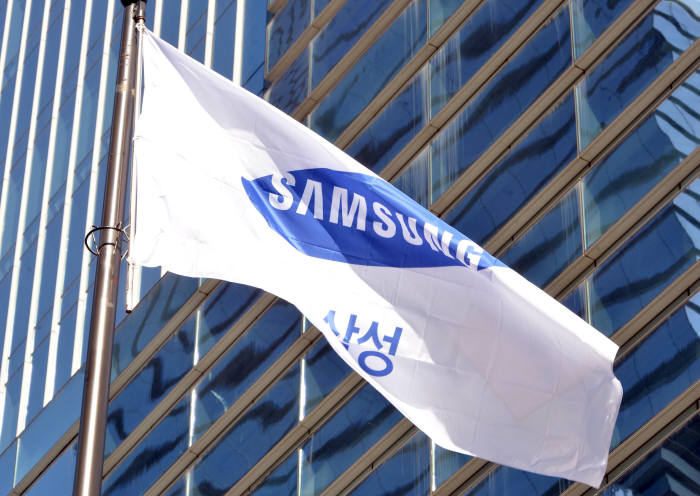[Korea IT News] Samsung Foundry, Confident of achieving second place in the industry (May 01, 2018)
Samsung Foundry, MPW Service First Start...
Confident of achieving second place in the industry

Starting this month, Samsung Electronics' foundry business department will start MPW (Multi-Project Wafer) service that produces prototypes of semiconductors from multiple customers for a wafer.
Its strategy is to increase sales of its semiconductor consignment production (foundry) business by changing its method of mass production from large customers' products until now.
Samsung Electronics is planning to become the second largest foundry business by recording $10 billion in sales for the first time this year.
According to industries on the 1st, Samsung Electronics has designated HanaTec, GAONCHIPS, and Alpha Holdings, which are South Korean design house companies, as partners and will start MPW services from this month.
MPW is a service that manufactures prototypes of chips for R&D (R&D) on a single wafer. We can save on the cost of prototype production. Because Samsung Electronics has been focusing its capabilities on large strategic customers such as Apple and Qualcomm, it did not provide MPW services. MPW service will be provided to customers that utilize 200mm (8 inches) foundry process.
"The so-called 'Samsung Foundry Ecosystem' will become more solid as the cost of prototype production in Samsung Electronics' foundry becomes cheaper," said a representative for the design house industry. "Many South Korean fabless 604 companies have already been incorporated into Samsung Foundry Business Department as new customers."
MPW service cooperative design house acts as a bridge between foundry and fabless businesses. When fabless companies send chip design codes, design houses will be in charge of back-end tasks such as manufacturing and testing masks that will be used for actual wafer processes in line with foundry companies' IPs.
Samsung Electronics is planning to expand its sales by opening its 200mm foundry plant to small and medium-sized businesses from 2016. Recently, it added RF (Radio Frequency), IoT80 (IoT80), and fingerprint recognition sensor processes to 200mm pounds. Samsung Electronics is currently providing six foundry processes including embedded flash memory (eFlash), power semiconductor (PMIC), display driver IC (DDI), and CMOS238 image sensor (CIS).
A process that focuses on small and medium fabless businesses along with 200mm pounds is a technology called Fully Depleted Silicon On Insulator (FD-SO221I). FD-SOI can produce chips with high performance and low power characteristics at a lower cost compared to normal CMOS processes. Starting with NXP this year, Samsung Electronics announced that it will produce more than 20 prototype chips from its customers through FD-SOI foundry process.
"Although Samsung's foundry business has been swayed by large customers such as Apple and Qualcomm, its business structure will be stabilized if its strategy to secure ecosystem is successful," said an industry source.
Its strategy is to increase sales of its semiconductor consignment production (foundry) business by changing its method of mass production from large customers' products until now.
Samsung Electronics is planning to become the second largest foundry business by recording $10 billion in sales for the first time this year.
According to industries on the 1st, Samsung Electronics has designated HanaTec, GAONCHIPS, and Alpha Holdings, which are South Korean design house companies, as partners and will start MPW services from this month.
MPW is a service that manufactures prototypes of chips for R&D (R&D) on a single wafer. We can save on the cost of prototype production. Because Samsung Electronics has been focusing its capabilities on large strategic customers such as Apple and Qualcomm, it did not provide MPW services. MPW service will be provided to customers that utilize 200mm (8 inches) foundry process.
"The so-called 'Samsung Foundry Ecosystem' will become more solid as the cost of prototype production in Samsung Electronics' foundry becomes cheaper," said a representative for the design house industry. "Many South Korean fabless 604 companies have already been incorporated into Samsung Foundry Business Department as new customers."
MPW service cooperative design house acts as a bridge between foundry and fabless businesses. When fabless companies send chip design codes, design houses will be in charge of back-end tasks such as manufacturing and testing masks that will be used for actual wafer processes in line with foundry companies' IPs.
Samsung Electronics is planning to expand its sales by opening its 200mm foundry plant to small and medium-sized businesses from 2016. Recently, it added RF (Radio Frequency), IoT80 (IoT80), and fingerprint recognition sensor processes to 200mm pounds. Samsung Electronics is currently providing six foundry processes including embedded flash memory (eFlash), power semiconductor (PMIC), display driver IC (DDI), and CMOS238 image sensor (CIS).
A process that focuses on small and medium fabless businesses along with 200mm pounds is a technology called Fully Depleted Silicon On Insulator (FD-SO221I). FD-SOI can produce chips with high performance and low power characteristics at a lower cost compared to normal CMOS processes. Starting with NXP this year, Samsung Electronics announced that it will produce more than 20 prototype chips from its customers through FD-SOI foundry process.
"Although Samsung's foundry business has been swayed by large customers such as Apple and Qualcomm, its business structure will be stabilized if its strategy to secure ecosystem is successful," said an industry source.
〃 World foundry industry ranking in 2017 (data: IC Insights)
Sales of ranking companies
1. TSMC 321.63 billion dollars
2. Global Foundries 60.6 billion dollars
3. UMC 48.98 billion dollars
4. Samsung Electronics 46 billion dollars
5. SMIC 31.01 billion dollars
Sales of ranking companies
1. TSMC 321.63 billion dollars
2. Global Foundries 60.6 billion dollars
3. UMC 48.98 billion dollars
4. Samsung Electronics 46 billion dollars
5. SMIC 31.01 billion dollars
By Han Joo-yeop, a semiconductor reporter (powerusr@etnews.com)

